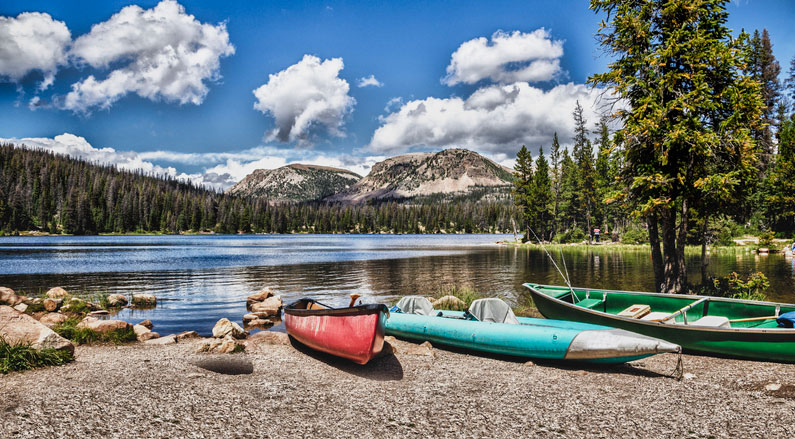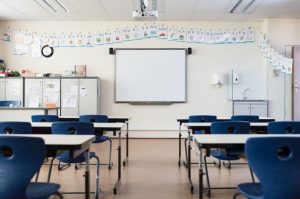10 Things You Should Not Do This Summer: Permission to Pause
6/7/2019

Burn out can come at any time, but more so at the end of the school year. After 20 years in education, this year has been one of my most difficult and stressful. In years past, I usually start dreaming about the books, professional development, podcasts, and articles I want to get caught up on over the summer. This year, not so much. In fact, this year I am vowing to take some time off completely from anything "educational". I cannot remember a time in my career where I have done this.
Teachers contractually work around 187-195 days a school year. For elementary and middle school principals, you can add another 20-30 days, High school principals and upper administration you may work all year around. I was lucky enough to work just 212 school days of contracted work this past year.
I have been a "yes" man and I find myself always taking on more in order to improve my skills, enhance my opportunities, and expand my breadth of educational knowledge. This summer is going to be different. I am excited to give myself permission to pause!
I am creating a list of things I am not going to do this summer. For those of you ready for a break from education, what would you add to this list? Here are 10 things I will not be doing, or doing with limitations, during my time off this summer!

1 - Visiting School
Most days of the summer I go in to work for a couple hours in order to work on projects. Sometimes these projects are for the next year or finishing projects from the past year. I also work to get a head of next year's projects, for example, working the school staff handbook, student handbook, schedules for all employees, back to school letters, and more. Some teachers have their keys to the school taken over the summer, most likely to clean properly. Not stepping foot in the school will be quiet difficult for me.
This summer I pledge to take a break from going into school.

2 - Attending a Professional Development Workshop
Summers may be the best time to get a workshop or training under your belt and really dive into the content. My summers for 20 years have contained several workshops. I have been able to attend many national conferences and see some of the top speakers in education. Unfortunately, professional development (PD) done during the school year may not be as effective while we have so many other responsibilities to manage. It is much more difficult for a teacher or principal to implement PD after school has started. Though we are asked to do this routinely, for most of us the best time to relax our brain and concentrate is the summer.
This summer I pledge to take a break from going to professional development workshops.

3 - Read an Educational Book
A four-to-one ratio is pretty close to the number of books I read on education in the summer as compared to the school year. To stay up on the latest in education, books obviously can be a great tool. As research changes our minds about many areas in education, we dissect these books to connect with something from the past to reconfirm our personal beliefs. Likewise, we take what is new in these books, determine if it is valid, and then find ways to implement and change our methods. This never ending growth mindset cycle for many of us is invigorating and keeps us going in education. A new book in the Hacking Learning Series came out in March, 2019: Hacking School Discipline: 9 Ways to Create a Culture of Empathy and Responsibility Using Restorative Justice by Nathan Maynard and Brad Weinstien. I already purchased it, but will put it aside until the fall.
This summer I pledge to ready only non-educational books all summer.

4 - Read an Educational Magazine
Many of us receive educational magazines from organizations in which we are members: NEA, AFT, ASCD, etc. The many cutting edge ideas, as well as policy reforms, we read about in these magazines can be exciting for us. If you are like me I can't wait to get the next one. I read these magazines many times from cover to cover. Weirdly enough, I read many of them from back to front as I like the shorter articles in the back and save the longer ones for a different time.
This summer I pledge to stack all these magazines aside until the fall.

5 - Listen to a Podcast
Driving, walking, working out, or even relaxing by the water can be a great time to listen to a podcast. There are a multitude of educational podcasts that are invigorating and inspiring. They can become addictive and may even put you into a "Netflix" type binge where you can't stop listening until you reach the last podcast. I did this with Hal Bowman… a must listen (I will binge this summer podcast next fall)! Some podcasts can be as short as 10 minutes, while others can be over an hour. You definitely have to prioritize your time.
This summer I pledge to take a break from all educational podcasts until the fall.

6 - Read an Article from my Twitter or Facebook Feed
I have to admit, this is probably where most of my time goes when reading and learning about the nuances of education reform and theory. Scrolling, scrolling, and click… I get attached to another article. I spend too much time reading stuff from Edutopia, Mindshift, EdWeek, and BehaviorFlip, to name a few. We use these resources to reconfirm a practice or belief, or even to change what we do and the strategies we implement. Many of these articles are short, 1000-3000 words, and can be read in one sitting. We get addicted to articles that list numbers in the title, like this one, "10 Things You Shouldn't Do This Summer…"
I pledge to save the best articles I see while scrolling for the fall and take a pause.

7 - Answer School Email
Another one of my addictions is to read and answer email quickly so they don't stack up on me. I have always felt that if I can get something handled before the school day starts I can spend more time with students and teachers while I'm there. Even though this philosophy has supported me in my success so far, I know I need a break! As I write this email, my current inbox sits at 906….ugghhh! Emails can become difficult to manage, especially since my own school expects me to answer them within 24 hours during the school year. We all must come up with a system to manage them.
I pledge to not answer emails during my non-contracted time this summer.

8 - Answer Phone Calls for School Business
Many of us set our school answering machines or phones at the end of May or beginning of June to a message that says we are gone for the summer. Somehow our phone numbers get out there and many parents, colleagues, businesses, and community members get their hands on it. The "asks" during the summer do not stop because school is out. We have to be careful to guard our time. Many of us have no problem answering these types of phone calls all year round. Setting healthy boundaries may be your first step in your ability to take a pause. Personally, I do not know if I can do this as I pride myself on communication, but I am going to limit these conversations throughout this summer.
I pledge to limit my calls on educational matters this summer.

9 - Talk About School
Do you know that feeling when you are binge watching your new favorite television series and the final credits roll? That feeling can be a letdown, in fact you may go into a "show hole". The urban dictionary describes a show hole this way:
"When you finally finish binge-watching all the episodes of a favorite TV series on Netflix/HULU/Amazon, as the credits to the final episode roll, that empty feeling that wraps around your soul because you don't know now what to do with your life."
This same feeling can be evident after the last student leaves on the last day of school. You may find that same sense of longing and emptiness because all you have done for the past 180 school days is…education!
We talk about school all the time. Many of us talk about it extensively with our friends, family, and even significant others. We have to find a new TV series to watch this summer…a new topic to talk about during the summer. Even better, we must delve into our non-educational hobbies to rejuvenate our love of education and even ourselves. When we can love ourselves and spend significant time on our hobbies, then we can love others even more!
I pledge to limit or not talk about school this summer, as well as pledging to delve deeply into my hobbies.

10 - Start a Computer
The addictions to our computers for some of us in education may be overwhelming to our family at times. In fact, many of us spend way too much time on our laptops. This is something our families and friends notice and talk about. We must make family a priority. This year my Verizon phone started sending me alerts about my screen-time habits. This is great information and it helps me set goals for reducing screen-time in the week that follows. With this data I know which applications I'm using the most and which ones I'm using the least, as well as the days I'm using my phone significantly more than others. Those of us who write, blog, or have a side hustle (another cash producing job) that involves the computer must determine and prioritize what is more important - reducing screen time or getting the work done. Unfortunately, some of us rely on our side hustle to make "teaching" work for the year.
I pledge to spend significantly less time on my computer (except to keep my side hustle going this summer)!
- Harnessing the Power of AI Tools for Teachers - April 11, 2024
- Lifelong Benefits and Rewards of a Teaching Career: Impacts on Life - September 15, 2023
- 7 Tips to Help You Choose the Right Teaching Degree Program - August 15, 2023










